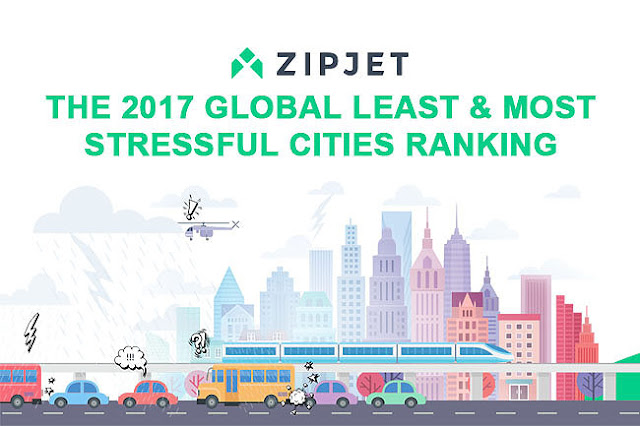Bandar Seri Begawan: 8th Least Stressful City in Asia-Pacific
BSB, 8th least stressful city in Asia-Pacific
September 23, 2017
| Azlan Othman |
A NEW study this year has revealed that Bandar Seri Begawan is the 8th least stressful city in the Asia-Pacific region and 68th globally.
According to a report by the United Kingdom (UK)-based Zipjet, the company studied 500 locations based on data comprising 17 categories involving infrastructure, pollution levels, finance and citizens’ wellbeing.
Specifically, the study covers traffic levels, public transport, percentage of green spaces, financial status of citizens including debt levels, physical and mental health, and the hours of sunlight the city gets per year.
The report stated that Bandar Seri Begawan has the lowest debt per capita and is less stressful due to its low population density, and scored high in financial stability and race equality. Of the 150 cities ranked, the city of Stuttgart in Germany comes out on top.
Luxembourg City, the capital of the tiny yet wealthy country of Luxembourg, home to fewer than 600,000 people, has the second-lowest stress levels. Hanover, also in Germany, comes in third place as least stressful.
Bern in Switzerland is 4th, while Bordeaux in France (6th) and Edinburgh in the UK (7th) also made it to the top of the charts.
The city that is ranked the most stressful overall is Baghdad in Iraq, with a total score of 10 (compared with Stuttgart’s one). Kabul in Afghanistan is the next most stressful city.
As for the Asia-Pacific region, Australia’s Sydney came first followed by New Zealand’s Wellington and Auckland, Melbourne in Australia, Singapore, Taiwan’s capital Taipei, Osaka in Japan and at the 8th position, Brunei’s capital Bandar Seri Begawan.
The report also stated that residents of Singapore and Taipei are the most satisfied with their cities’ public transport, while Leipzig in Germany and Montpelier in France have the lowest levels of traffic congestion.
In the security category in which the official average rates of theft and murder are weighted against United Nations data on the local perception of security per capita, Abu Dhabi was judged the most “safe” place to live by its citizens, with Osaka ranked second.
Zipjet has developed a technology which aims to reduce stress in people’s lives. Anxiety and stress have been pinpointed again and again as key factors contributing to the deterioration of mental health and quality of life.
Zipjet, a London-based door-to-door dry cleaning service powered by an app, undertook this study to find out how the most stressful cities around the world can benefit from the example of cities least affected by stress. The company hopes to develop a technology to reduce stress in everyday life.
“Individuals feel stressed for different reasons, requiring our study to look at data from a macro level to determine the comprehensive well-being of a city’s population. We examined the overall mental health of a city, and then considered all of the major stress-inducing factors, including unemployment, debt per capita, traffic, public transport, security, pollution and density,” the report added.
“We also considered elements such as lack of sunshine hours, which has been linked to poor mental health,” said Zipjet in the report.
“Mental health problems are on the rise worldwide, with stress being a trigger and contributing factor towards this increase. We hope that by pinpointing how the least stressful cities are managing this issue, those cities struggling with a stressed out population can overcome it,” said Florian Färber, Managing Director of Zipjet.
“We’re happy to be a part of the wave of digitalisation working to reduce stress all around the world,” he said.
Courtesy of Borneo Bulletin



Comments